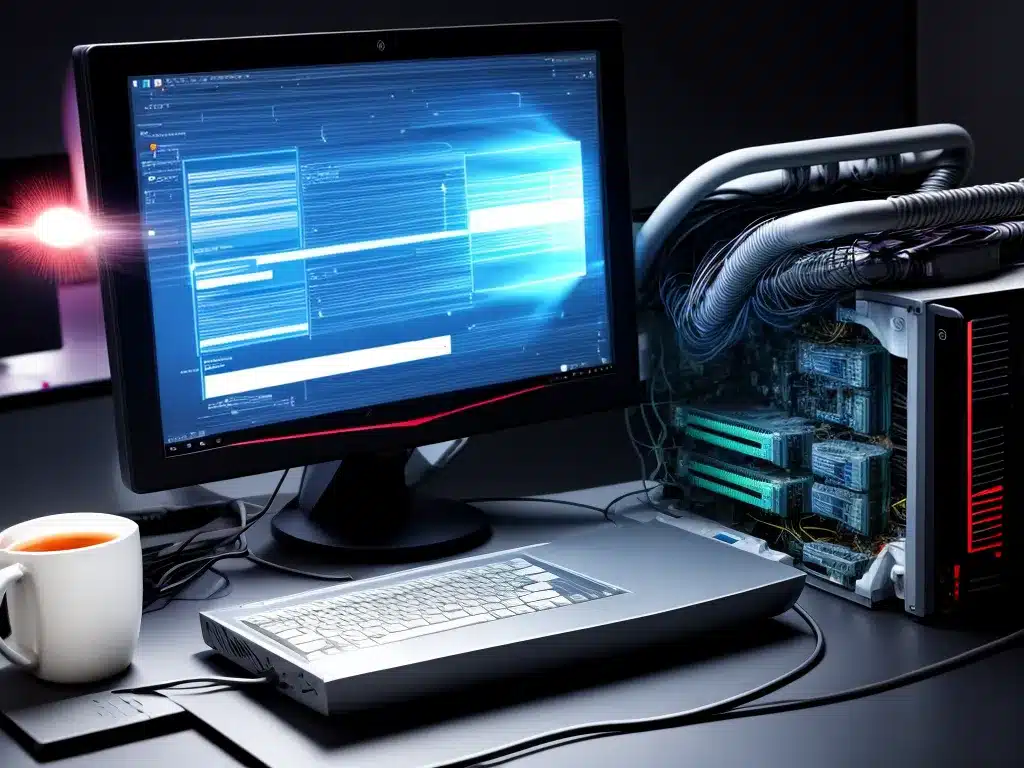
A slow computer can be incredibly frustrating. As someone who relies on my computer for work and entertainment, I know the pain of waiting for web pages to load or applications to open. Fortunately, there are many ways to improve your computer’s speed and performance. Here are my top tips for speeding up a slow computer.
Clean Up Your Hard Drive
One of the best ways to speed up a computer is by freeing up hard drive space. The more cluttered your hard drive is, the slower your computer will run. Here are a few ways I clean up my hard drive:
Uninstall Unused Applications
Open up the control panel and uninstall any applications you no longer need or use. Some programs run in the background constantly, slowing things down. Removing them can help speed things up.
Delete Temporary Files
Temporary files from your internet browser, operating system, and other applications can take up a lot of hard drive space. Use the disc cleanup utility to remove these unnecessary temporary files.
Remove Duplicate Files
Duplicate files waste space and slow things down. Use a duplicate file finder to identify and remove copies of documents, photos, videos, and music. This frees up storage space.
Back Up Large Files
Back up your large files, like photos, videos, and music libraries to an external hard drive or cloud storage. This removes them from your main hard drive to free up space.
Add More RAM
Another excellent way to speed up a slow computer is to upgrade its RAM (random access memory). Having more RAM allows your computer to access data faster. Check how much RAM your computer currently has and consider upgrading it if it’s low. Adding more RAM will significantly improve performance.
Change Background Programs
The number of background applications and processes running on your computer can slow it down over time. Disable or uninstall any background programs you don’t need. For example, you may want to disable startup programs that launch when you boot your computer. Reducing background clutter can help optimize your computer’s performance.
Update Your Software
Maintaining updated software and drivers is key to keeping your computer running smoothly. Outdated software and drivers can cause compatibility issues that slow down performance. Regularly check for Windows, MacOS, and driver software updates. Keeping everything updated prevents bugs and optimizes speed.
Perform Regular Maintenance
Doing regular computer maintenance helps prevent slow downs before they happen. Here are a few maintenance tips:
- Run disk defragmentation to organize files and speed up hard drive access
- Scan for malware viruses, spyware, and adware can slow computers down
- Clean dust buildup from computer hardware to prevent overheating
- Delete browsing history/caches to free up RAM and storage space
Adjust Visual Appearance
The visual appearance settings on your computer can impact performance. Here are a few adjustments to boost speed:
- Reduce brightness to lower GPU usage
- Use a simpler wallpaper photo wallpapers take up more resources
- Disable unnecessary visual effects like transparency or animations
- Disable desktop gadgets and widgets that run in the background
Conclusion
With a combination of software maintenance, optimizing visual settings, adding RAM, and cleaning up your hard drive, you can breathe new life into a slow computer. The most impactful steps are deleting unnecessary files, upgrading RAM, and uninstalling resource-heavy background programs. With some diligent computer maintenance and updates, you can get back to enjoying a smooth, speedy computer.












